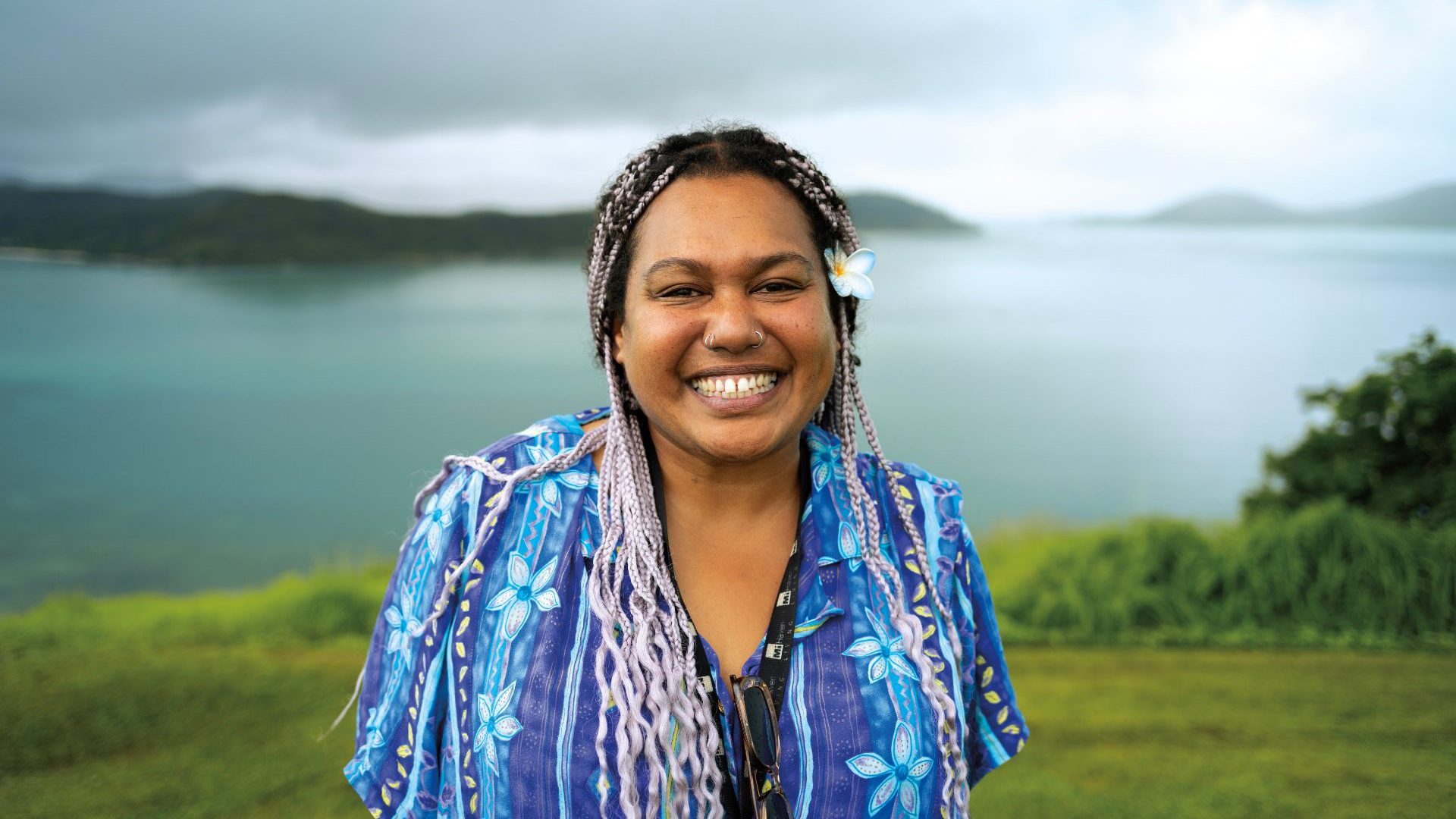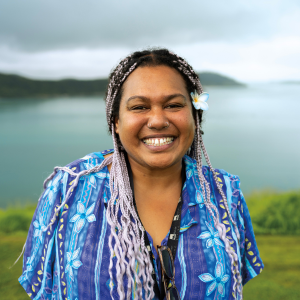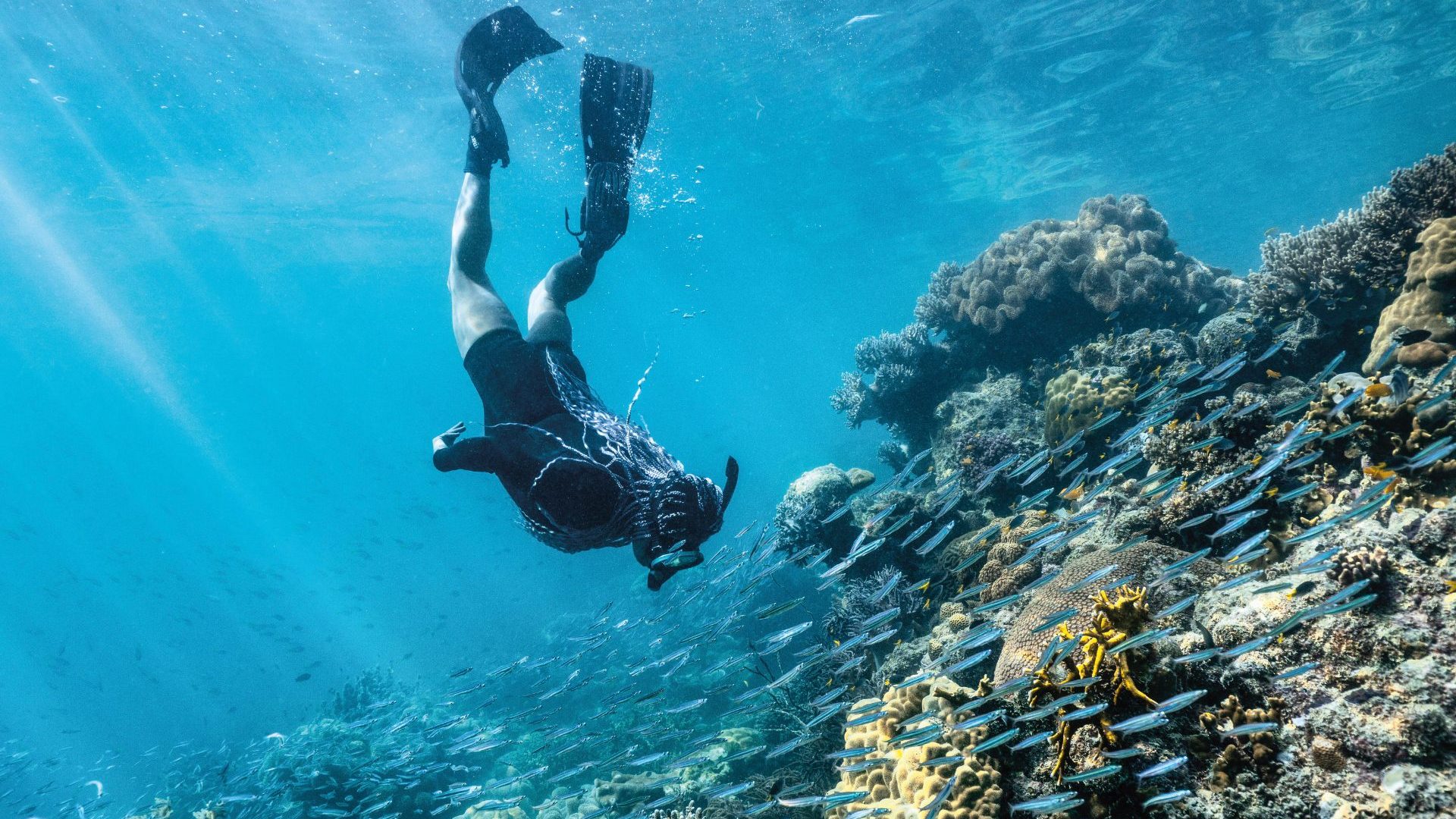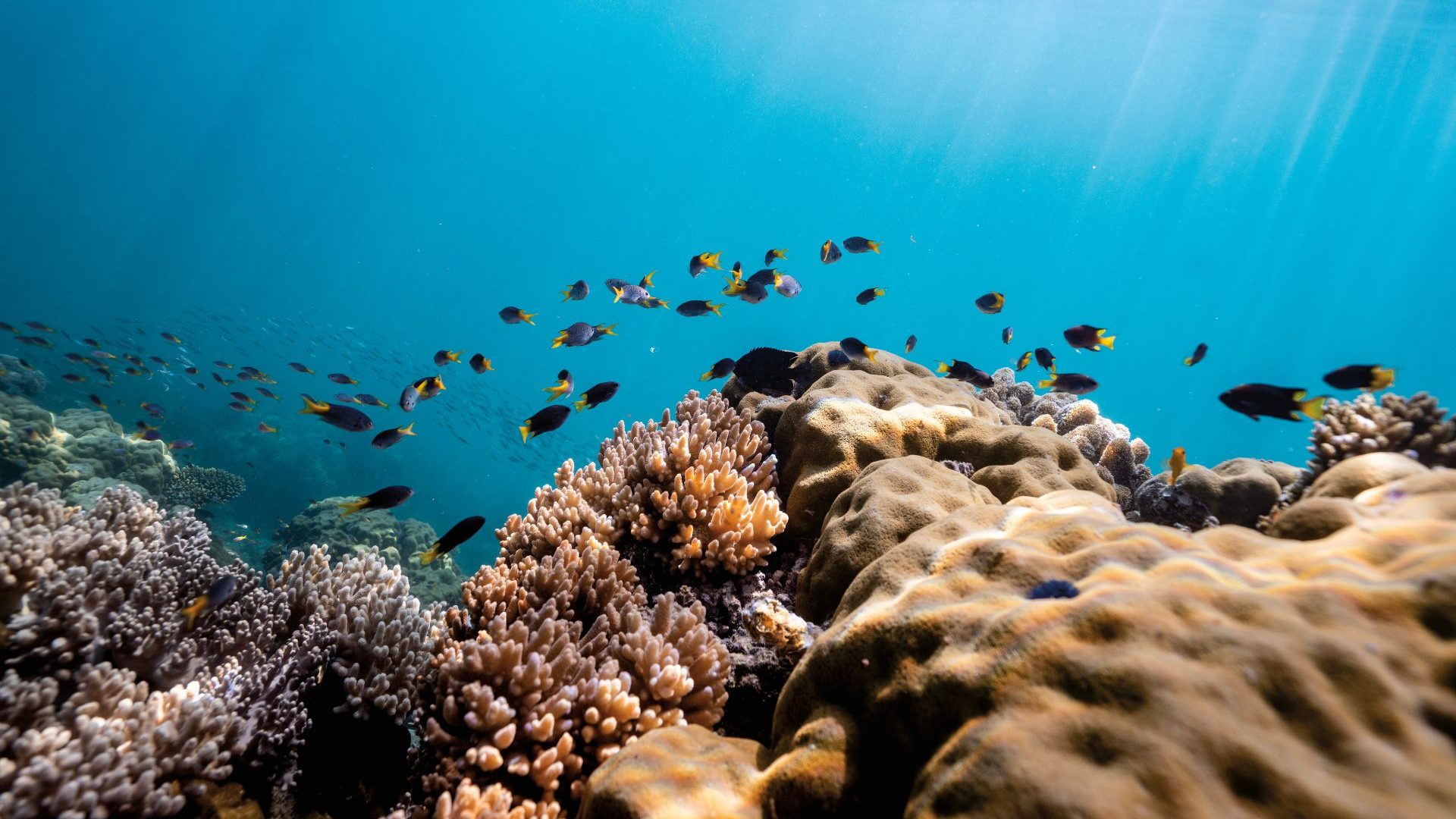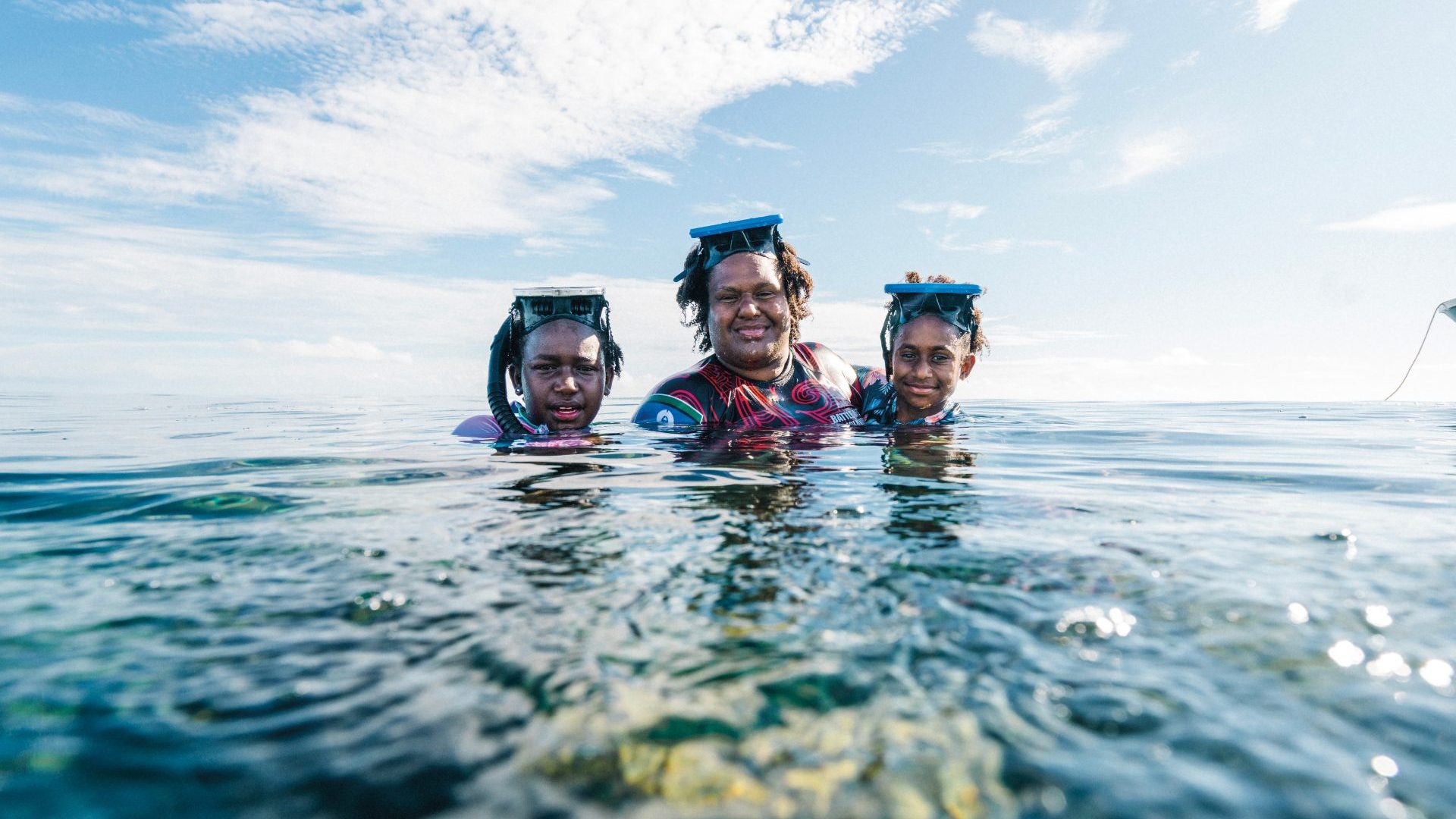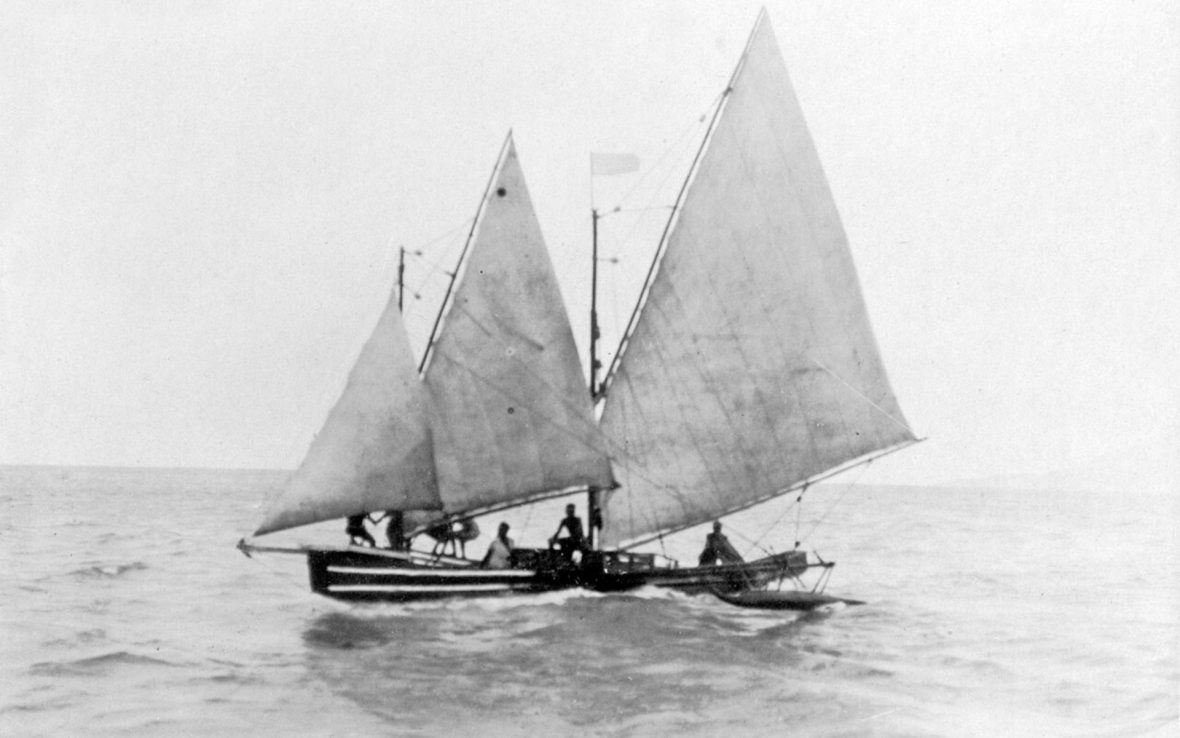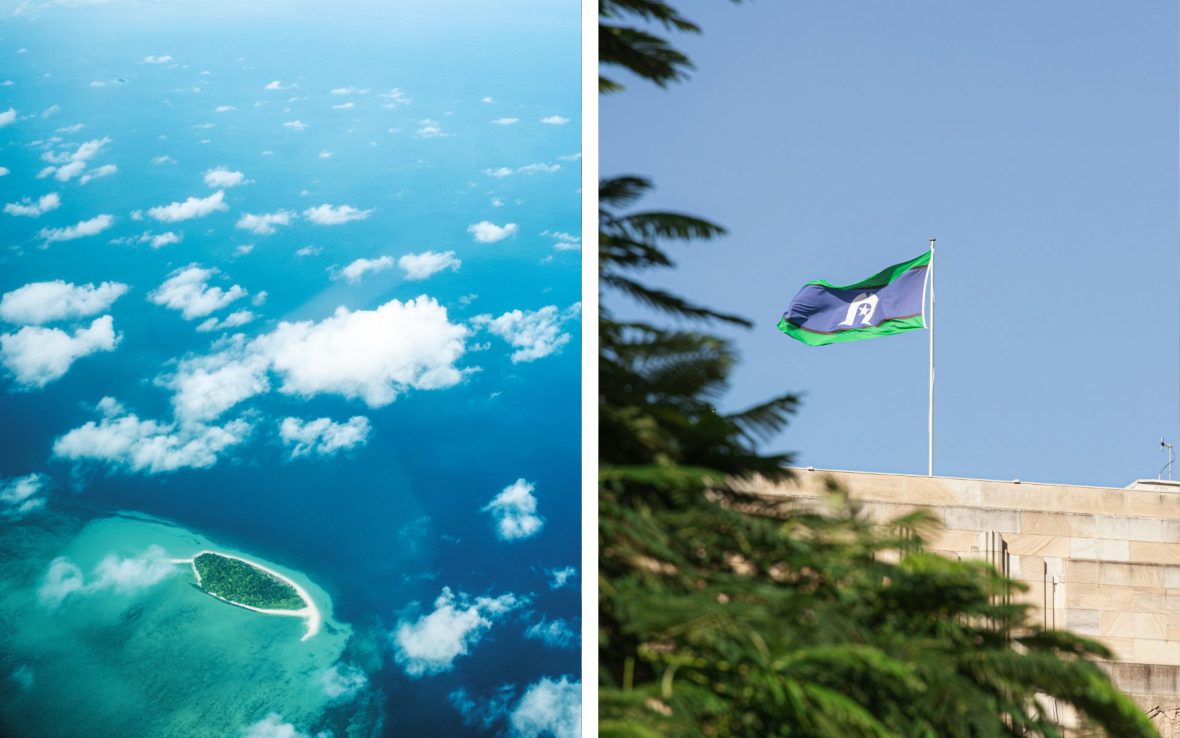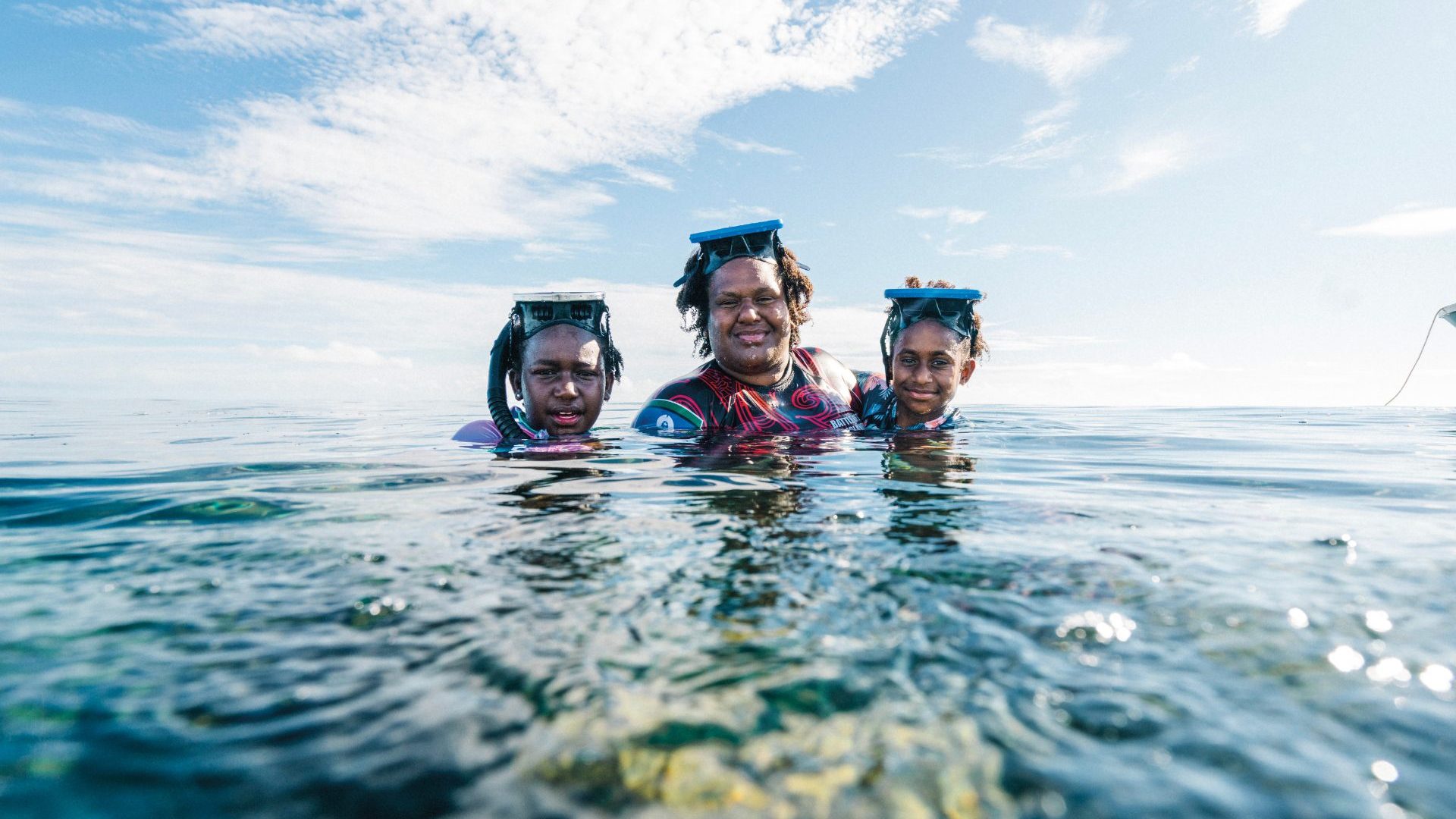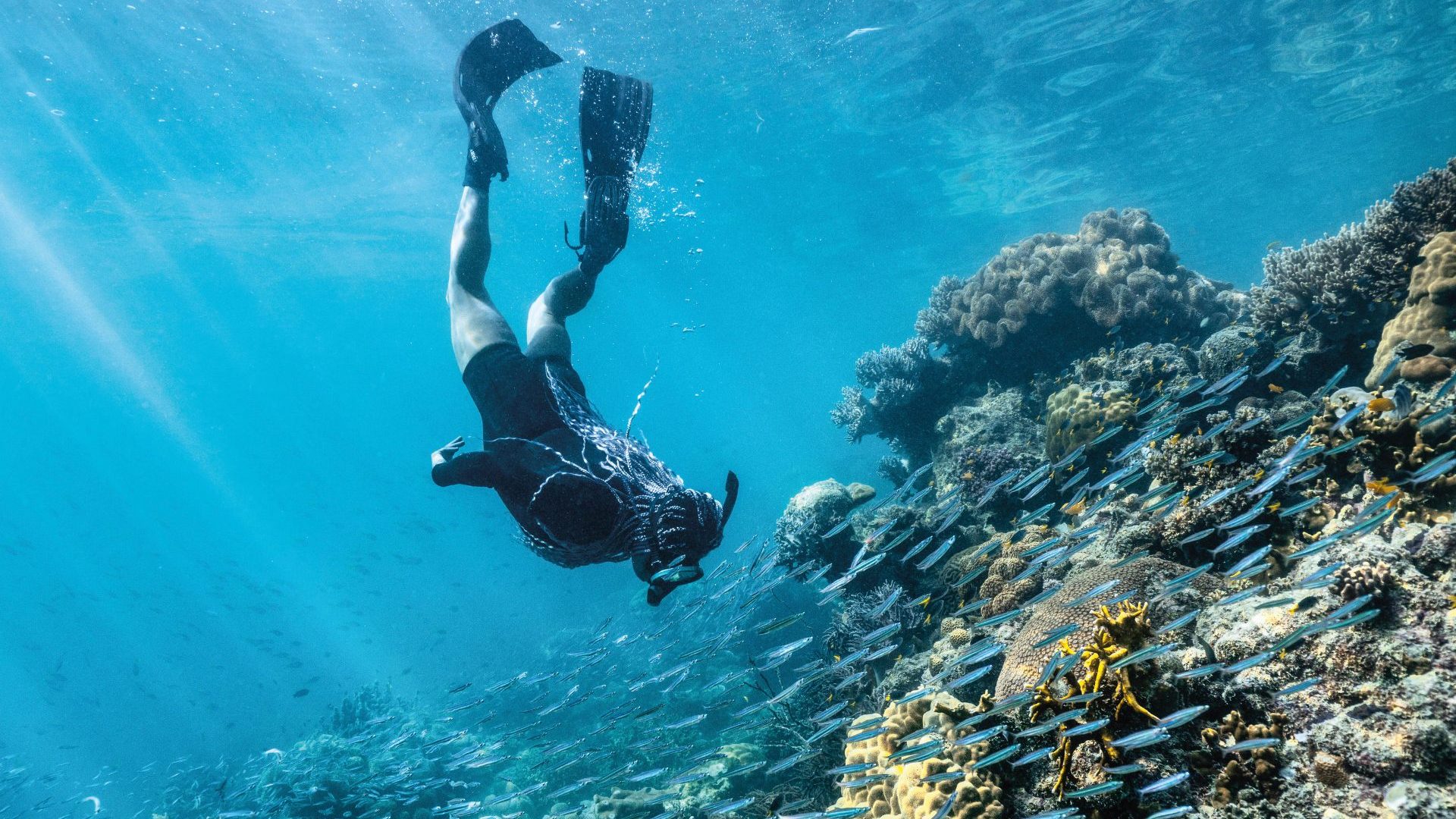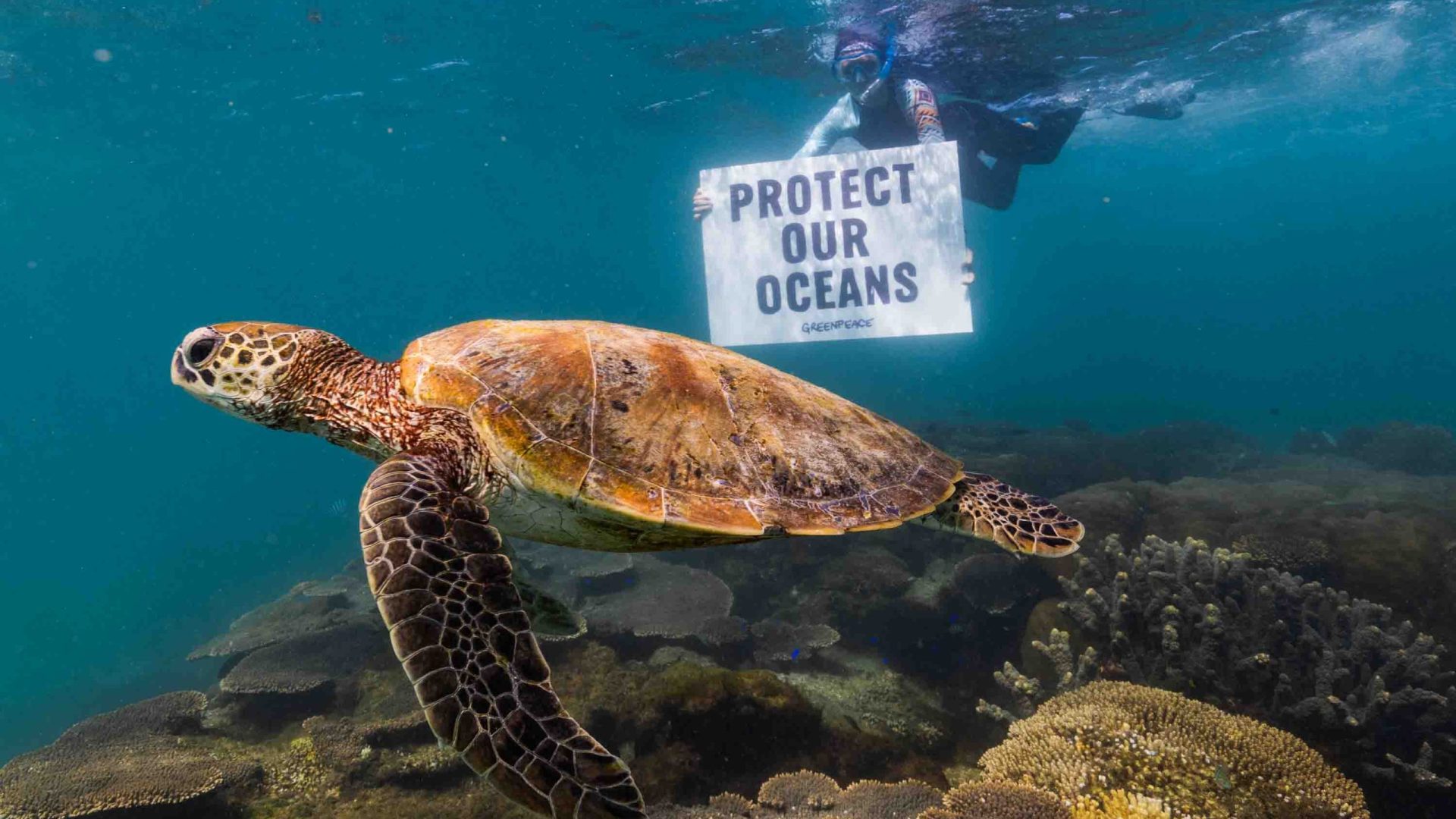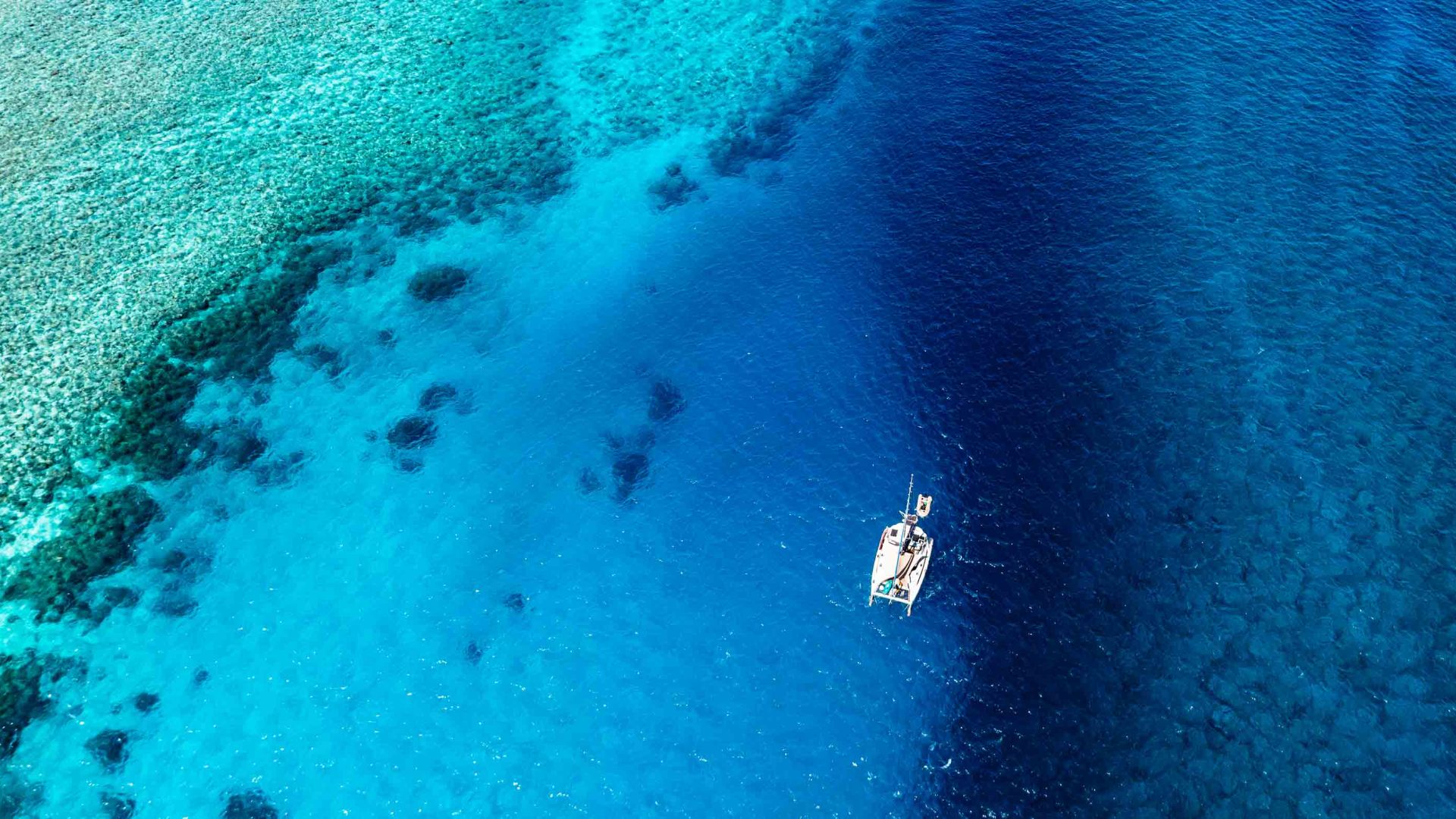When I was a young girl I would sit on the balcony and eat lollies with my Athe—my grandpa. I used to run across to the convenience store to get them, then we’d sit there and look out to the ocean—to Sea Country: Our hospital, our teacher, our life. He’d say to me: “If you look after the ocean, the ocean will return you home.”
I didn’t understand the meaning then. But I understood the responsibility of us being saltwater people. Of being connected to the ocean. It wasn’t until I was older that it really started to make sense for me—I began to see firsthand the impacts of mining and dumping and pollution and runoff. In 2011, I joined a cleanup crew for an oil spill off south east Queensland and saw the effect on the grass beds. It reminded me of home, and how the disintegration of our sea grass beds meant my totem—the dugongs—had all relocated elsewhere.
And that’s just the start of it. Zenadth Kes—my home—is currently on the frontlines of the climate crisis. Sea levels here are rising roughly three times faster than the global average, putting much of these islands underwater and leaving our people facing displacement. This has been our reality for as long as I can remember, and since our communities first had to relocate in 1937.
But relocation is no longer an option. Why should we move from our ancestral home? We have been here for 65,000 years. Torres Strait Islander people don’t contribute to national or global emissions. We are the least responsible and the most at risk of losing everything—our homelands, our burial grounds, traditional practices, our language. Everything.
